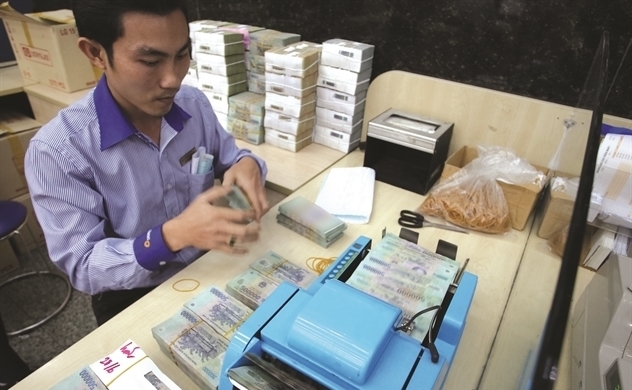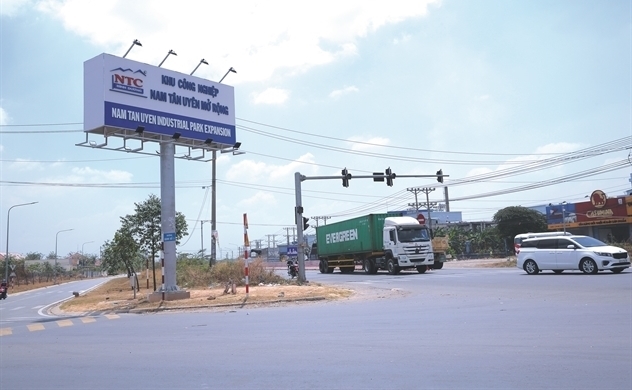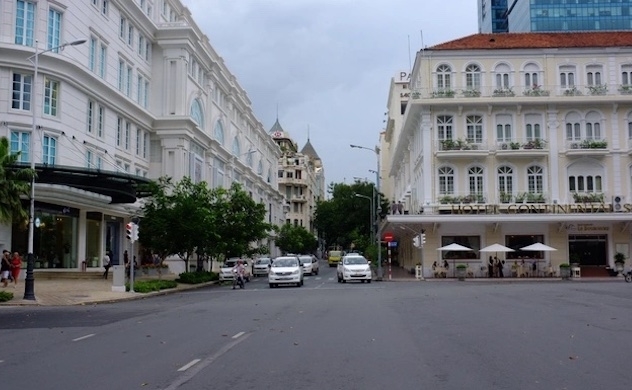More capital needed for real estate market's recovery

Real estate businesses are placing high hopes on the draft Land Law. Photo: Quy Hoa.
To hasten the market's recovery, the prime minister has recently asked the State Bank to direct banks to encourage real estate lending.
Open the valve
Even though the lending conditions are difficult, the VND120,000 billion loan package has not had a significant impact on the real market. After half a year of implementation, this support package has only disbursed VND83 billion, or less than 0.07% of the package.
Lacking operating capital, the real estate market continues to exhibit few signs of optimism even in the face of numerous optimistic forecasts for a recovery in the middle to late 2023.
The Ho Chi Minh City Department of Construction reports that during the first nine months of 2023, the city's real estate industry experienced a negative growth of 8.71%.
In contrast to an 8.3% decline in the first six months and a 14.6% decline in the first four months, the real estate industry's revenue decreased by 4.7% in the first nine months of the year.
Therefore, the order to promote real estate lending will have a positive impact on market developments in the coming time by helping to bring more cash flow into the market.
Homebuyers can obtain credit capital, potentially at a reduced interest rate. Accordingly, the capital bottleneck is considered partially removed. The Ministry of Construction's recently released third-quarter real estate market report revealed that, as of August 31, 2023, outstanding credit for business activities related to real estate reached VND986,477 billion, which is encouraging news for this policy.
In the first 8 months of the year, banks injected nearly VND186,500 billion into real estate business activities. According to calculations, the real estate business sector contributed more than 28% of the total credit increase in the first eight months of the year.
"As government policies and real estate loan packages have a significant impact on the market, signs of recovery may start to emerge in mid-2024. Notably, the bank will be able to access more robust capital sources in 2024," financial expert Dr. Nguyen Tri Hieu stated.
The dual thrust of policy and supply
As credit has expanded by almost 5%, which is equal to the growth of the entire economy, capital is gradually entering the real estate sector, according to Dr. Can Van Luc, a member of the National Financial and Monetary Policy Advisory Council. Credit for real estate businesses alone has increased by 18%.
"The current problem is that market demand is still weak, especially the housing credit demand of individual customers in the context of reduced income and high-interest rates," Mr. Luc said.
To clear the real estate deadlock, it is also necessary to solve the supply problem for the market because the main projects are facing legal problems. About 700 commercial housing projects nationwide have legal problems, while the number of projects that have been resolved is less than 10%.
In the latest report on the real estate market, VinaCapital also emphasized that Vietnam does not have enough new housing to meet the growing needs of the middle class, which needs apartments that are not too expensive.
According to Mr. Michael Kokalari, Chief Economist of VinaCapital, the first bottleneck that investors are facing to build more apartments or housing units is Vietnam's planning and approval process, which has always been strict. In addition, investors are also in dire need of financial support for land acquisition/land fund activities and project construction, which also slows down the progress of housing projects.
“Interest rates in Vietnam are particularly high, making it difficult for investors to continue building projects. The issue of capital loans is significantly impacted by the challenges investors face during the planning and approval process, as banks will not support loan projects without management agencies' approval "said Mr. Michael Kokalari.
Real estate businesses are placing high expectations on the draft Land Law (amended), which includes regulations to promote the commercialization of land use rights and establish requirements for building a real estate market information system associated with land information.
Along with that, the draft Housing Law (amended) adds regulations on forms of social housing development and supplements regulations on preferential loans through the Bank for Social Policies to develop social housing.
The real estate market has experienced four growth cycles and three freezes over the past three decades, with each cycle linked to the formation and amendment of law projects or related legal documents. The Amendment of Land Law, Real Estate Business Law, and Housing Law is expected to continue contributing to a new growth cycle in the market.
The real estate market is expected to turn around the following year when all the required conditions are met, including the completion of debt restructuring, a reorganization of business operations, and the commencement of new projects by numerous companies in the sector.
Relevant laws and policies are being considered as factors to regulate the market in the right and more sustainable direction.
Same category news
Latest news
-
Huyen Hoang

 TIẾNG VIỆT
TIẾNG VIỆT 








_291615658.jpg)









